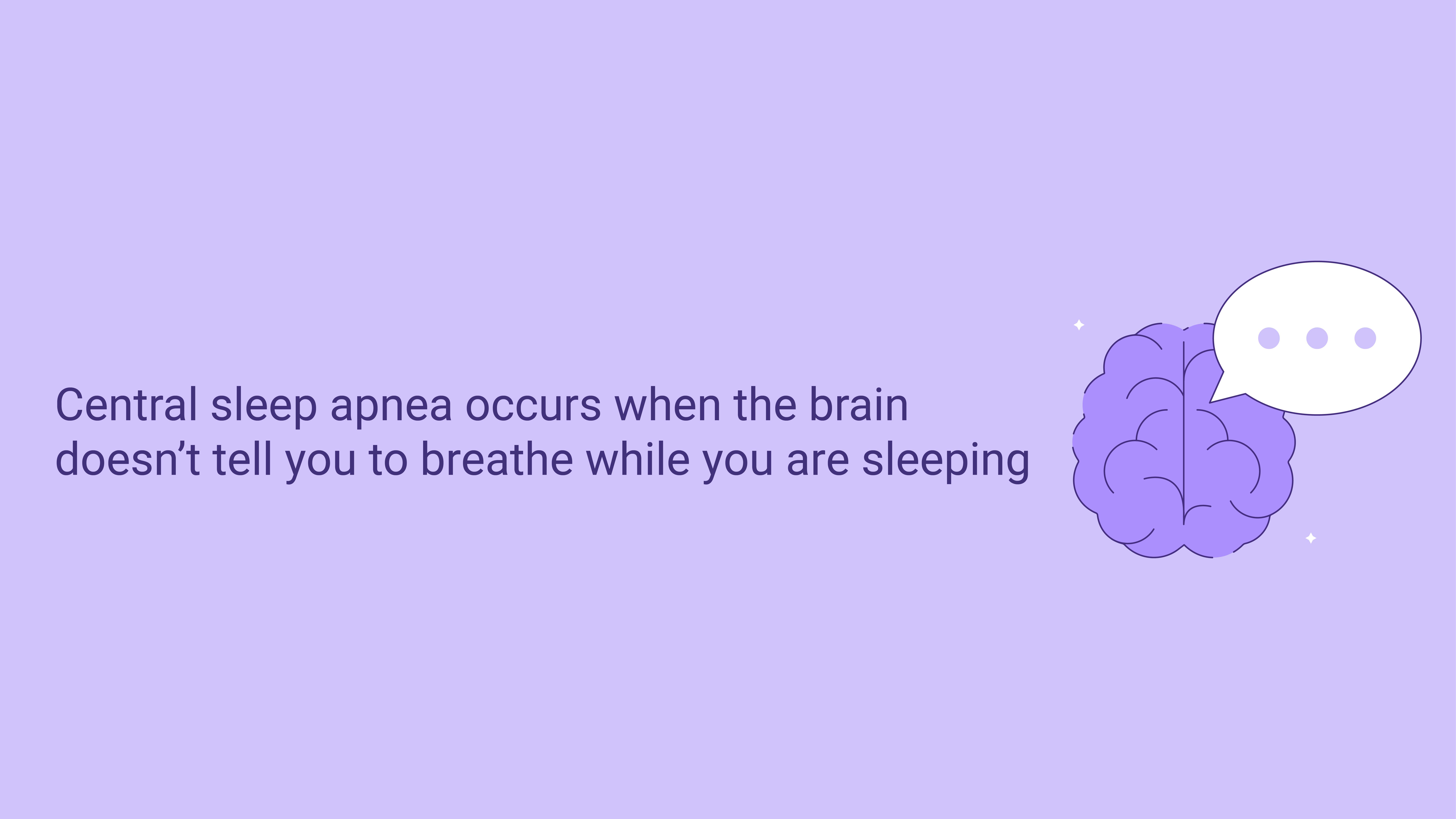
How to Sleep With a Snorer
Roughly 40 percent of men and 25 percent of women snore consistently, so there’s a good chance you either are a snorer or sleep next to one. With the exception of those who sleep deeply every night, sleeping next to a snorer can keep you from getting the rest you need, and may eventually strain your relationship.
Part of the path towards a quiet night’s sleep is understanding what snoring is, and why some people snore and not others. Remember: no matter how loud and continuous your companion snores, they are not doing it on purpose. Be straightforward and patient with them as you work toward finding a solution to cease snoring.
There are different levels of snoring—some people only snore occasionally, and others snore every night. Noticing how often your partner snores is key to understanding the underlying cause. The cause is not serious in most cases, but there is the chance the loud snoring may be a symptom of sleep apnea. Below, we discuss the most likely causes of snoring and other symptoms of sleep apnea.
What Causes Snoring?
The back of the throat is lined with loose tissues designed to keep food and liquid from going up your nose or down into your lungs when you swallow. Snoring happens when these tissues partially block your windpipe while you are sleeping. When the nose and throat can’t pull air smoothly into your lungs, the tissues around the back of your throat vibrate and create the snoring sound.
There are many reasons for the tissues in the back of the throat to partially block your airways at night. Here are the most common:
Sleep Posture
A likely culprit is how you sleep. Back sleepers have a higher chance of snoring, because in this position the tissues at the back of your throat are relaxed and can fold back over the opening of your windpipe, partially blocking the airways. Encourage your partner to switch to side sleeping, and if they have trouble with the transition, suggest tucking a body pillow against their back to keep them propped in this position. Side sleeping keeps the tissues from folding over the opening of the windpipe, clearing the airways and making breathing easier.
Weight Gain
Gaining weight, even just a bit, can bring on snoring. As the tissues at the back of the throat become flabby, they are more likely to get in the way of breathing. Asking your partner to lose weight is a sensitive topic, but it can be beneficial for you both. As they become healthier, the snoring may disappear, and their active lifestyle will give them a better night’s rest.
Getting Older
It happens to all of us. When entering middle age, it’s common for your throat to lose muscle tone, and shrink. With your throat getting smaller, the airways have a higher likelihood of getting blocked by the relaxed tissues. There are exercises that strengthen your throat muscles; one is called the Tongue Slide. Here’s how it works:
Put the tip of your tongue against the back of your top front teeth. Slowly drag your tongue backward along the roof of your mouth, then slide it back towards your teeth. Do this at least 5–10 times. This strengthens your tongue and your throat muscles.
Clogged Airways
Colds or allergies clog your sinuses, making it hard to breathe, and this can lead to snoring. Try taking some nasal decongestants, and put a humidifier in your room while you sleep—the humidity helps open up your nasal passages.
Sleep Apnea: A More Serious Cause of Snoring

Most snorers can be cured by making new sleeping habits or improving their overall health. However, snoring can be a symptom of sleep apnea. Sleep apnea is a sleeping disorder where the sleeper’s breathing stops and starts throughout the night.
There are three kinds of sleep apnea: obstructive, central, and mixed. The most common type is obstructive sleep apnea, which is caused by the throat tissues completely blocking the airways on and off throughout the night. Central sleep apnea occurs when the brain doesn’t tell you to breathe while you are sleeping. Mixed sleep apnea is a combination of the first two; when the throat tissues close the windpipe, the brain needs to wake you up to get the breathing started again.
Signs of Sleep Apnea
Loud snoring could be a sign your partner has sleep apnea. Another symptom of this condition is daytime exhaustion. People with sleep apnea aren’t able to achieve deep sleep because their body keeps waking them up when it can’t breathe.
Your task, if you suspect your partner might have sleep apnea, is to gather information. Observe them at night. Do they stop breathing for stretches of time, wake up abruptly, or start choking or gasping? Make note of these occurrences. If you can’t stay awake to watch for these signs, set up a recording device.
Treatments for Sleep Apnea
Once you’ve established your partner’s loud snoring is a symptom of sleep apnea, it’s time to figure out how to treat their condition. Some of the remedies for snoring discussed earlier still apply. An active, healthy lifestyle will keep the tissues around their throat toned, and sleeping on their side will help keep the airways open. These practices won’t cure their sleep apnea, but they will help manage their condition.
Those who have sleep apnea need to go see a doctor. The doctor may prescribe a Continuous Positive Airway Pressure (CPAP) machine. This is a machine that uses pressurized oxygen, pumped into a face-mask, to keep the airways open throughout the night.
The doctor may also recommend a mouthguard that moves the lower jaw and tongue forward. Doing this pulls the throat tissues away from the opening of the windpipe, creating a clear airway.
Snoring and Your Relationship
Regardless of what is causing your partner to snore, the result is the same: you aren’t getting enough sleep. Your exhaustion and the frustration that results can cause tension in your relationship.
Tips for Sleeping with a Snorer
Your relationship with your partner is important, and finding a way for you both to get good rest at night is a necessity. Here are some tips:
1. Ask your partner to change their sleeping position
Snorers are almost always back sleepers. In this position, the tissues at the back of the throat are likely to relax and close the airways. Ask your partner to try sleeping on their side. If they agree, a creative way to help them stay on their side is sewing a tennis ball onto the back of their pajamas. The tennis ball will make rolling onto their back uncomfortable, and they will return to their side.
Some back sleepers aren’t able to make the switch to side sleeping. For these folks, purchase a wedge pillow that elevates their head about four inches. This will clear their airways, and the gradual incline of the wedge pillow will keep their spine in a neutral position.
2. Try nasal strips
These strips help by holding open the nasal passages, keeping them from collapsing while inhaling. This improves oxygen flow. Nasal strips might be uncomfortable at first but stick with them for at least a week to see if they work. If they help, you should get used to them before too long.
3. Use earplugs
If nothing works, and your partner’s snoring continues, invest in a pair of noise-canceling headphones or earplugs. These should help you get the sleep you need, and keep your relationship resentment-free.
FAQs
What does snoring indicate?
Snoring could be a sign you need to make lifestyle changes, or that you have sleep apnea. For the former, start exercising more and eating healthy foods. Weight gain can make the tissues in the back of your throat flabby, and cause snoring by blocking your airways. For the latter, go see your doctor and ask what steps you should take to treat this condition.
What is an effective home remedy for snoring?
Staying hydrated will help. Dehydration leads to mucus buildup in your nostrils, and this blocks your airways. Clearing out your sinuses right before bed may also help. You can do this with a neti pot, or a steam facial. Give yourself a steam facial by filling a bowl with some boiling water, leaning over it, and covering your head and the bowl with a towel. This creates a tent full of steam, and breathing the steam in deeply will clear your sinuses.
Is snoring a sign of bad health?
Not necessarily. It could be a sign of poor lifestyle choices, bad sleeping habits, or just a small throat. As long as you are breathing continuously throughout the night, snoring does not mean you are in bad health.
Does snoring get worse with age?
Snoring can increase as you get older. Around middle age, our throats start to lose muscle tone, making it easier for the airways to become partially blocked. We also tend to gain weight as we age, and this makes the tissues at the back of our throats more flabby and likely to block the windpipe.
What foods can help me stop snoring?
Snoring caused by a cold or throat inflammation can be helped by honey and peppermint tea. Both soothe the throat and decrease inflammation. This opens your airways and makes breathing easier.
How to Sleep With a Snorer
It is important to remember that your partner is not snoring out of spite. They may not even know they are doing it! We are all at our worst without consistent sleep, so if your partner is keeping you up with their throat buzzing, do your best to not lash out.
Be straight with them. Let them know their snoring is keeping you awake, and tell them about some potential remedies. Approaching the subject of snoring as a team will be more effective and healthy for your relationship.
